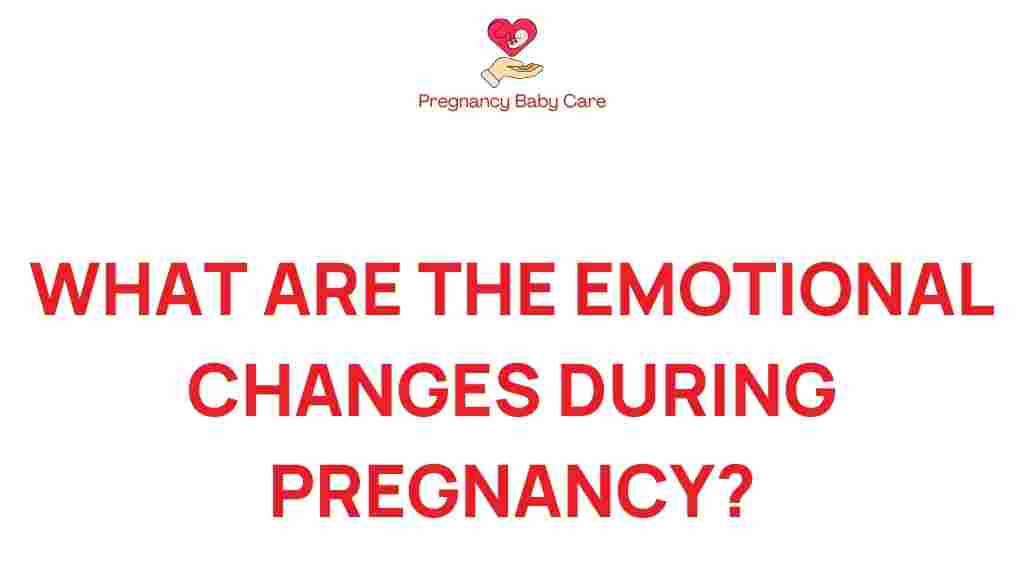Unraveling the Emotional Changes During Pregnancy
Pregnancy is a transformative journey, filled with anticipation, joy, and a whirlwind of emotions. As a woman embarks on this path, her emotional landscape undergoes significant changes that can impact her mental health and overall well-being. Understanding these emotional changes is crucial for expecting mothers and their partners. In this article, we will explore the various emotional changes during pregnancy, their causes, the effects on mental health, and ways to navigate this complex terrain.
The Role of Hormonal Shifts
One of the primary reasons for emotional changes during pregnancy is the dramatic shift in hormones. The body produces increased levels of hormones such as estrogen and progesterone, which play vital roles in preparing the body for the developing fetus. However, these hormonal fluctuations can lead to:
- Mood Swings: Many women experience sudden and intense mood swings, often feeling elated one moment and tearful the next.
- Increased Sensitivity: Expecting mothers may find themselves more sensitive to stressors, leading to heightened emotional responses.
- Anxiety and Worry: Hormonal changes can contribute to increased feelings of anxiety and concern about the future.
Understanding the role of hormonal shifts is essential, as it helps women recognize that these emotional changes are a normal part of pregnancy.
Understanding Prenatal Anxiety
Prenatal anxiety is a common emotional change during pregnancy. Many women worry about their health, the baby’s health, labor, and parenthood. This anxiety can manifest in various ways:
- Physical Symptoms: Some may experience increased heart rate, insomnia, or other physical symptoms of anxiety.
- Excessive Worry: Thoughts may become fixated on potential problems or fears regarding pregnancy and parenting.
- Social Isolation: Expecting mothers might withdraw from social situations, fearing that others won’t understand their emotional state.
It’s important to address these feelings, as they can affect emotional well-being and overall mental health during pregnancy.
Exploring Maternal Emotions
The emotional changes during pregnancy are not just about mood swings and anxiety. They also include a range of maternal emotions that can be both profound and overwhelming. These may include:
- Joy: The excitement of becoming a mother can lead to intense feelings of happiness.
- Fear: Concerns about the changes to come can create feelings of fear and uncertainty.
- Love: Many women feel a deep connection with their unborn child, which can be both uplifting and intimidating.
Recognizing and embracing these maternal emotions can be an essential part of the pregnancy experience.
Impact on Mental Health
The emotional changes during pregnancy can significantly impact mental health. It’s crucial to be aware of these effects and to seek support when needed. Some key points to consider include:
- Pre-existing Conditions: Women with a history of mental health issues may experience heightened symptoms during pregnancy.
- Support Systems: Having a strong support system can help mitigate negative emotional changes and foster emotional well-being.
- Professional Help: Seeking therapy or counseling can provide coping strategies for managing emotional changes.
Maintaining mental health during pregnancy is vital for both the mother and the developing baby.
Here are some steps expecting mothers can take to navigate the emotional changes during pregnancy:
- Educate Yourself: Understanding what to expect can help alleviate anxiety and prepare for emotional changes.
- Maintain a Healthy Lifestyle: Eating well, exercising, and getting enough sleep can positively impact your mood.
- Stay Connected: Reach out to friends and family for support. Sharing feelings can lighten the emotional load.
- Practice Mindfulness: Techniques such as meditation or yoga can help manage stress and promote emotional well-being.
- Seek Professional Help: If feelings of anxiety or depression become overwhelming, consider speaking to a mental health professional.
By actively engaging in these steps, women can better manage their emotional landscape during pregnancy.
Postpartum Emotional Landscape
After the baby arrives, new mothers may experience a different set of emotional changes. The postpartum period can be both exhilarating and challenging:
- Postpartum Blues: Many women experience temporary mood swings and emotional highs and lows.
- Postpartum Depression: This more severe condition can occur in some women and requires professional treatment.
- Adjustment Challenges: The transition to motherhood can bring feelings of inadequacy or anxiety about parenting.
Recognizing that emotional changes can continue after childbirth is essential for new mothers to seek support and care.
Troubleshooting Emotional Changes
Here are some troubleshooting tips to help manage emotional changes during pregnancy:
- Journal Your Feelings: Writing about your emotions can provide clarity and help process feelings.
- Join Support Groups: Connecting with other expecting or new mothers can provide comfort and shared experiences.
- Limit Stressors: Identify sources of stress in your life and try to minimize them during your pregnancy.
- Talk to Your Partner: Open communication about feelings can strengthen relationships and provide mutual support.
Implementing these strategies can help manage emotional changes and promote a healthier pregnancy experience.
Conclusion: Embracing the Journey
The emotional changes during pregnancy are multifaceted and can deeply affect a woman’s mental health and overall well-being. By understanding the causes of these changes, recognizing the signs of prenatal anxiety, and implementing coping strategies, expecting mothers can better navigate this transformative time. Remember, it’s essential to seek support from loved ones and professionals when needed. Embracing this emotional journey, with all its ups and downs, is part of the beautiful experience of becoming a mother.
For further information on mental health during pregnancy, consider visiting this resource on maternal health. Additionally, connecting with local support groups can be beneficial for emotional well-being. Remember, you are not alone on this journey.
This article is in the category Pregnancy and created by PregnancyBabyCare Team
